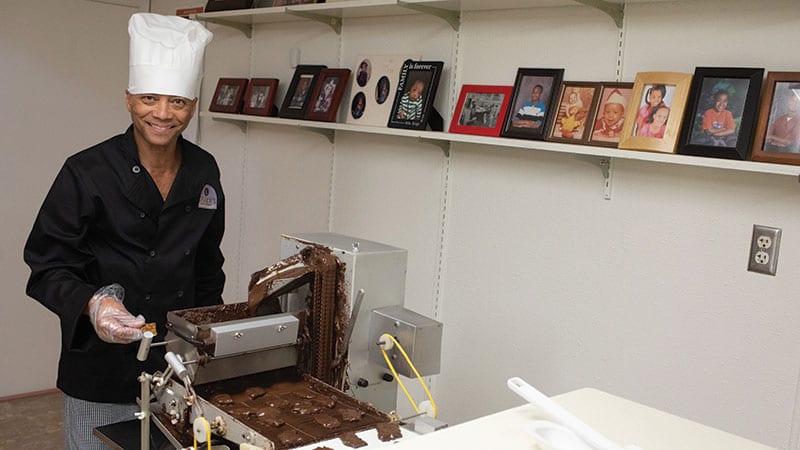Our co-op community
This article was originally published in January 2021
PCC has strong Pacific Northwest roots. We have been giving to our community for decades—supporting neighborhoods, ensuring a sustainable and accessible food system and protecting the environment. Read on to learn about some of the latest projects we’ve assisted and connect with us online so we can support your efforts to build a more healthy and sustainable community.

PCC Diverse Entrepreneur Grants
Over the past three years, PCC Community Markets and Ventures, a local nonprofit that helps budding entrepreneurs launch businesses, have worked together to support small-scale entrepreneurs in reaching their goals (see Sound Consumer article, “Craftsmanship and Care: Ventures Partnership Helps Small Producers with Big Ideas”). Adding to that partnership, PCC has launched a new microgrant program to help diverse entrepreneurs enrolled as Ventures clients continue to scale up their operations.
These grants of up to $2,000 each, administered through Ventures, will aim to support local, small and mid-sized businesses that are Black, Indigenous, people of color, women or LGBTQIA+ owned. Recipients must have completed PCC’s Scaling for Success class with Ventures and must produce a packaged good that could be carried on PCC’s shelves, among other requirements. Look in future issues of the Sound Consumer to learn about the first round of entrepreneurs and their projects supported by these grants.
Food Access
As we take a deep breath and make plans to support PCC’s food bank partners in 2021, there is much to reflect on from the year we are leaving behind. Changes occurred so quickly, as COVID hit our communities last spring, that it feels impossible to think of a time before when things were “normal.” As we gather a better sense of what the new “normal” might hold, PCC is committed to remaining nimble to support our partners and the community members they serve. At the end of 2020, social distancing guidelines meant we were still unable to hold the bulk donation packaging parties that we had previously sponsored each month. Instead, we sent cash donations to each of our partner food banks. This allowed each to use the resources in the way that would best address their own needs.
PCC’s food bank partners face many different challenges: space limitations, volunteer base and staff capacity. These challenges have only been amplified by the pandemic. As COVID forced many programs to move their operations outside, our food bank partners operated under rainy, cold, and even occasionally smoky skies. Despite this, each found flexible, creative ways to provide food to a growing customer base while keeping their volunteers safe.
Taking a page from our food bank partners, PCC began evaluating ways we could make our program more flexible. As mentioned above, our donations of bulk foods were no longer helpful in the new COVID social distancing reality. In response, we developed a partnership with Seattle Neighborhood Farmers Markets and Harvest against Hunger, where produce from economically impacted farms could be purchased for food banks. In early 2021 we plan to launch a promising new direct purchasing program developed in partnership with UNFI. The program allows our food bank partners to purchase directly from our supplier, which gives them direct access to PCC’s own supply chain. The purchases can be funded by both our shopper-funded donations and the food bank’s own budget. This gives food banks resilience in the face of tremendous supply chain pressure, as well as providing more choices and personal agency.
What’s next in 2021? We are thinking beyond the food itself and looking at how we can share what we have with our partners, be it space, resources or knowledge. We are also creatively considering how we could, in partnership with the store staff, reimagine PCC’s monthly volunteer packaging parties that many have come to enjoy over the decades.
This time of rapid change has shown us, once again, that we can do much more together than we can ever accomplish apart. None of this work would be possible without the shoppers, members and community of PCC Community Markets. Thank you so much for your continued support. Its impact includes nutritional value and sustenance, but also so much more.
We welcome program donations here.
